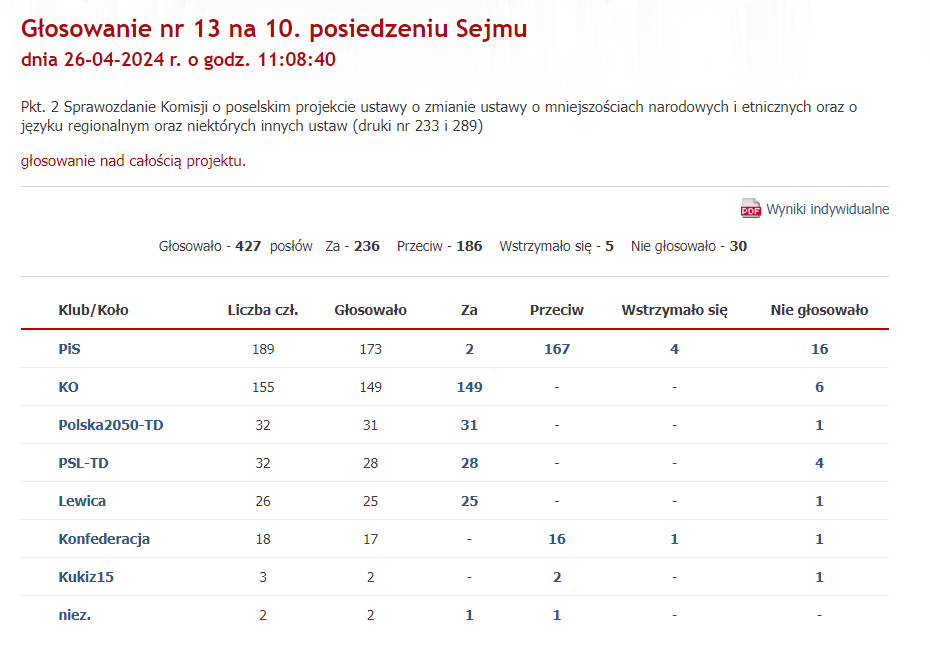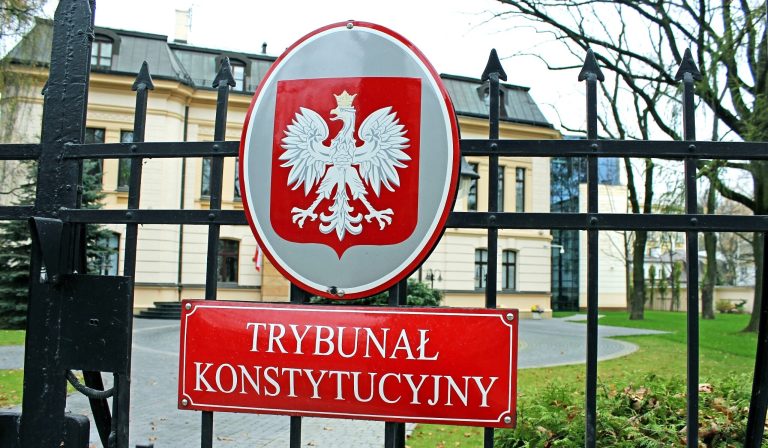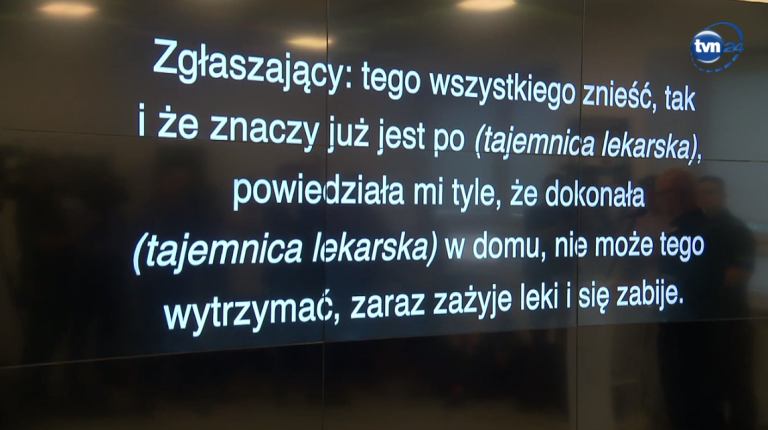Law to recognise Silesian as regional language in Poland approved by parliament

The government’s majority in parliament has approved a law that would recognise Silesian – which is spoken in the historical area of Silesia in southwest Poland – as an official regional language.
Right-wing opposition parties voted against the legislation, arguing that, according to linguists, Silesian is a dialect of Polish rather than a language in its own right.
In the most recent national census, around 460,000 people in Poland said they use Silesian as their main language at home. That is far more than the 87,600 who speak Kashubian, a language native to northern Poland that is currently the country’s only recognised regional language.
Such official recognition allows a language to be taught in schools and used in local administration in municipalities where at least 20% of the population declared in the last census that they speak it.
In a vote today in the Sejm, the more powerful lower house of parliament, a majority of 236 MPs voted in favour of the bill. They came almost entirely from the three groups that make up the ruling coalition: the centrist Civic Platform (KO), the centre-right Third Way (Trzecia Droga), and The Left (Lewica).
The 186 votes against the bill came from the national-conservative Law and Justice (PiS) – Poland’s ruling party until December last year – the far-right Confederation (Konfederacja), and the small right-wing Kukiz’15 group.
The bill now passes to the upper-house Senate, where the government also has a majority and which can in any case only delay, rather than block, the legislation. If approved by parliament, it then moves to the desk of President Andrzej Duda, a PiS ally, who can sign it into law or veto it.

How parliamentary groups voted on the bill to recognise Silesian as a regional language (za = for, przeciw = against)
One of the most prominent supporters of the bill, KO MP Monika Rosa, celebrated its passage through the Sejm, saying it was a triumph for “dozens of years of grassroots efforts in Silesia”, reports news website Gazeta.pl.
She added that the results of the vote in the Sejm showed “a clash of visions: one side, which does not understand diversity, downplaying Silesianness and the value of the Silesian language, and the other side that saw great value in minority languages”.
Another politician from Silesia, MEP Łukasz Kohut, celebrated the vote by declaring “Je żech fest rod” (Silesian for “I am very happy”) in a post on X.
🟨🟦Je żech fest rod❗️
Historia dzieje się na naszych oczach. Polski parlament uszanował prawa Ślązaków i Ślązaczek❗️
Sejm przegłosował ustawę o uznaniu języka śląskiego za język regionalny. Za projektem zagłosowało aż 236 posłów i posłanek. Tym samym został zrealizowany punkt… pic.twitter.com/ziyu0ldPrB
— Łukasz Kohut 🇪🇺 (@LukaszKohut) April 26, 2024
However, PiS MP Wojciech Zubowski accused supporters of the bill of creating a false narrative that presents the right as hostile towards Silesia and its people.
“No one on the right is against the Silesian region and Silesians,” he said. This is simply about “respect for the law and common sense…The expert positions presented during the discussion confirmed that linguists are against the proposed changes”.
Likewise, Roman Fritz of Confederation said that Silesian “was and is considered by probably all Polish linguists to be a dialect of the Polish language…[with] no major grammatical features that do not occur simultaneously in [the nearby regions] of Małopolska and Wielkopolska”.
Nie istnieje język śląski. Jest to dialekt w ramach języka polskiego 🇵🇱💬
🗨️Jan Miodek: „Nie ma ani jednej cechy dialektu śląskiego, która by go różniła od innych dialektów, w aspekcie historyczno-językowym. Wszystko to, co jest na Śląsku, jest gdzie indziej. Mazurzenie? Cała… pic.twitter.com/AMrgmS4T9t
— Rafał Buca 🇵🇱 (@Rafal_Buca) April 26, 2024
The bill to recognise Silesian as a regional language was submitted to parliament in January by MPs from K). Doing so was one of the 100 policies KO promised before October’s elections to implement if it came to power.
The state budget for 2024, adopted by the KO-led government after it took office in December and approved by parliament earlier this year, already includes 2 million zloty (€463,000) for the preparation of programmes to teach the Silesian language.
The creators of the bill argue that there has been a significant development of Silesian in recent years, that the language has been codified, and that its literary form is being developed, including through the publication of Silesian translations of The Hobbit and The Little Prince, among others.

Books in Silesian (Kamil Czaiński/Wikimedia Commons, under CC BY-SA 4.0)
However, there has long been a debate about whether Silesian constitutes a separate language or is rather a dialect of Polish. Linguists often describe it as an “ethnolect”, meaning a variety of language associated with a certain ethnic group.
When asked about Silesian becoming an officially recognised language Jan Miodek, a famous Polish linguist, called the idea “nonsense, naivety combined with fanaticism”.
Signs in Polish and Silesian have been installed in two Kaufland supermarkets in Silesia.
According to the author of the translations, this proves that Silesian – classified as an ethnolect, not a language – is a living communication toolhttps://t.co/8L4ubjeGUO
— Notes from Poland 🇵🇱 (@notesfrompoland) December 28, 2022

Notes from Poland is run by a small editorial team and published by an independent, non-profit foundation that is funded through donations from our readers. We cannot do what we do without your support.
Main image credit: BARTLOMIEJ BARCZYK / Agencja Wyborcza.pl

Daniel Tilles is editor-in-chief of Notes from Poland. He has written on Polish affairs for a wide range of publications, including Foreign Policy, POLITICO Europe, EUobserver and Dziennik Gazeta Prawna.


![Poland’s Tusk government is not so different from its PiS predecessor [Opinion]](https://polskieczasy.pl/wp-content/uploads/2024/10/53393979442_a57350ace2_ka-768x405.jpg)



